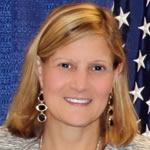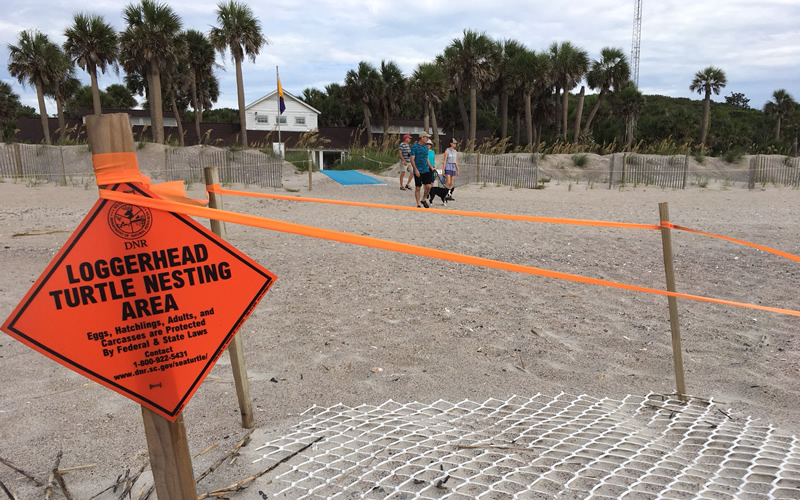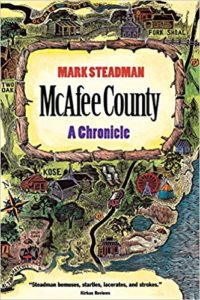 NEWS: S.C. sits back as others bird-dog regulating emerging tech
NEWS: S.C. sits back as others bird-dog regulating emerging tech
NEWS BRIEFS: Leverette dies, nuclear leaks, vote protection, Medicaid, more
CALENDAR: Public hearings scheduled for utility rate relief
COMMENTARY, Brack: Dems should lighten up, but GOP shouldn’t be tone-deaf
SPOTLIGHT: Municipal Association of South Carolina
FEEDBACK: Three letters from readers
MYSTERY PHOTO: Loggerhead nesting area
S.C. ENCYCLOPEDIA: Novelist Mark Steadman
NEWS: S.C. sits back as others bird-dog regulating emerging tech

[EDITOR’S NOTE: The following story is technical and kind of wonky. But it focuses on an emerging policy area important to anyone interested in good government. The whole subject of cryptocurrency is an emerging technology. Used properly, it could transform business. But used in nefarious ways, it could cause big problems. Regulators and legislators need to be familiar with the issue to make sure consumers aren’t hurt.]
By Lindsay Street, Statehouse correspondent | State legislatures across the country are taking notice of an emerging technology called “blockchain” that could upend how businesses operate and create a need for regulatory framework.
But while South Carolina’s attorney general has made headlines for issuing cease-and-desist letters to two companies using the technology behind the digital currency Bitcoin, South Carolina lawmakers appear flat-footed when it comes to policy to regulate it.

“I see no scenario in which blockchain does not transform many, many industries and it’s important that the leaders crafting laws help companies take part in that marketplace,” Michael Bolick of Greenville told Statehouse Report. Bolick is managing director at Treis Mining, a company that uses the technology. It has invested $10 million in a South Carolina data mining center, according to this May story.
He likened blockchain technology and its projected impacts to how email transformed business and communication at the end of the 20th century and how steamships upended business in the 19th century.
Blockchain is a digital public ledger technology that records transactions. It is most well-known for its use as a non-government backed currency, or cryptocurrency, such as Bitcoin. But other industries, including those in the medical industry, are beginning to explore its use. Verifying transactions on a digital ledger is called “mining.” Overseeing these transactions offers an investment opportunity for mining companies like Treis as they earn a percentage of the transaction through complicated computations.
State’s top attorney seeks to protect investors
Neither S.C. House nor Senate staff members could point to a lawmaker who has expressed a policy exploration of blockchain technology or its related uses. Calls to several key lawmakers were met with a vague familiarity of the technology but no knowledge of any impending legislation for the 2019-2020 session.

But at the South Carolina Attorney General’s Office, Deputy Securities Commissioner Tracy Meyers has been steeped in cryptocurrency and blockchain mining. This year, the office issued two cease-and-desist letters to Genesis and Shipchain. Genesis is the largest Bitcoin miner in the world, and Shipchain is a blockchain-using logistics company based in Greenville.
Meyers said the office’s interest in cryptocurrency and blockchain mining comes from protecting investors.
“People who are offering the average investor the chance to do mining for Bitcoin or other currency, most the time we’ve found they are taking the money,” she said, adding that emerging technology can draw unscrupulous businesses seeking to take advantage of those with only a cursory knowledge of it. “It is the hot scam.”
Both cease-and-desist letters have been retracted — the only two such letters to be retracted from the office since the 1990s. Meyers said the letter to Genesis was sent after the office was unable to verify the legitimacy of investment claims. Once verified, the letter was retracted, she said.
Meyers said Shipchain prompted concern due to a potential violation of securities law when it offered free tokens as an initial coin offering to invest in the company. Meyers said the company agreed that it was not giving out free tokens.
“(State law) lets us be proactive. We have everything we need mainly because to us, it’s not whether it’s cryptocurrency or whether it’s a time machine … is it an investment and is it at the end of the day the people taking your money and doing something with it?” Meyers said.
‘Get out in front’
Other states have become even more proactive when it comes to blockchain. The first piece of state legislation dealing with cryptocurrency was passed in California in 2014, according to National Conference of State Legislatures Fiscal Affairs program principal Heather Morton.
Morton held a seminar on blockchain for state lawmakers earlier this year. She also penned the report that lists at least 50 bills introduced in 22 states in 2018.
“It’s something that’s developing,” Morton said. “In terms of why states are putting forth legislation about it is, one, the economic development aspect; two, they’re looking at concerns about whether these currencies are being used in a criminal manner with money laundering and that kind of thing; and the unclaimed property and money transmission. This is a growing industry and so states feel a need they need to respond to that.”
Wyoming and Arizona stood out this year because they are working to attract blockchain-using businesses to their state, Morton said.
“States are looking at ways that digital currency businesses are using or creating or involved digital currency, what impact they could have on their state economies,” Morton said. She added that Arizona and Wyoming are “attempting to get out in front.”
Blockchain-focused policies are a matter of “when” in states like South Carolina, Morton said.
“Just because there might not be legislation yet doesn’t mean there might not be something in the future,” she said. “I’m not surprised by that everybody (in South Carolina) is still trying to figure out what it is how it works and what it means.”
Meyers said the Attorney General’s Office is satisfied with current laws on the books in terms of protecting citizens from bad investments linked to blockchain.
‘A mecca’
 That leaves two policy options for the state: setting ground rules for businesses to compete fairly and incentivizing the industry to locate and operate in the state.
That leaves two policy options for the state: setting ground rules for businesses to compete fairly and incentivizing the industry to locate and operate in the state.
“Do not put roadblocks to these types of companies,” Bolick said. “By the same token, the rule of law and the structure of marketplace is effective for the differentiation of the highest quality companies.”
Bolick said fair rules and freedom to operate could “let South Carolina to be a mecca??? for companies like ours.” He suggested the state treat the businesses like it does with the life-science industry and its SCBio initiative. Like that industry, blockchain industries will offer high-paying jobs in the state, he said.
“It will fit the model of the knowledge economy in spades,” Bolick said.
S.C. Department of Commerce’s Adrienne Fairwell said the state’s economic development team is aware of blockchain technology but it’s not an industry the state is “actively seeking.”
“If we were approached by a company like that, then we would definitely do the due diligence to see how that company would benefit the state and help it thrive and grow within our borders,” she told Statehouse Report.
Morton said there is plenty of time for South Carolina to catch up on learning about blockchain and understanding how state policy can play a role.
“It’s still a developing industry so I don’t know if anybody is really falling behind,” she said.
- Have a comment? Send to: feedback@statehousereport.com
NEWS BRIEFS
BRIEFS: Leverette dies, nuclear leaks, vote protection, Medicaid, more
By Lindsay Street, Statehouse correspondent | Sarah Leverette, a Columbia lawyer known for her long work for women’s rights, died Aug. 29 at the age of 98.

Leverette graduated from the University of South Carolina School of Law in 1943. In the decades since, she advocated for informed democracy and women’s rights. Earlier this year, she was awarded USC’s Compleat Lawyer Award.
S.C. Lawyers Weekly wrote the following about Leverette prior to her death:
“This is just one of many accomplishments that the nonagenarian has achieved in her lifetime. To name a few, she headed the USC School of Law library for 25 years and was the first female faculty member at the school while also teaching legal writing, she was a commissioner on the South Carolina Workers’ Compensation Commission, a board member on the South Carolina League of Women Voters and the South Carolina Women Lawyers Association and, after retiring, she became a real estate agent, which she has continued to do until recent health issues have slowed her at the age of 98.”
In other news this week:
More uranium leaks uncovered in Midlands. Following Statehouse Report’s story last week regarding questions on whether the state should do more to protect residents from nuclear spills, more leaks have been reported at Westinghouse’s plant near Columbia. About a hundred people attended a meeting Aug. 30 during which they learned nuclear regulators will reopen an investigation of the plant after finding undisclosed leaks there. Read more here.
McMaster’s Medicaid move stalled. A federal judge has temporarily halted Gov. Henry McMaster’s executive order that would strip Medicaid funds from abortion-providing clinics in the state. Planned Parenthood sued the state after McMaster issued the order earlier this year. Read more here.
Senators not helping protect votes in S.C. As editor Andy Brack pointed out last week in a commentary, South Carolina is in dire need of fixing its election system. The fix would cost $50 million. In a State newspaper article this week, Republicans U.S. Sens. Lindsey Graham and Tim Scott were singled out for not bringing federal money into the state to shore up elections in the state. Read more here.
Big counties lead state in human trafficking cases. Greenville County saw 49 percent of the state’s human trafficking cases in 2017. Charleston, Horry, Richland and Beaufort counties saw the next highest numbers of cases. Read more here.
Tech schools now offer a four-year degree. Technical colleges in South Carolina are now able to offer a four-year degree in advanced manufacturing technology as long as they don’t use any additional state funding for the program. Read more here.
CALENDAR: Public hearings scheduled for utility rate relief
Staff reports | The S.C. Public Service Commission has announced three public hearing opportunities for South Carolina Electric & Gas customers to air grievances over nuclear surcharge rates.
![]() The rates were levied to pay for billions spent on two nuclear plants that were canceled before completion in 2017. Earlier this year, the General Assembly voted to force the company to refund 15 of the 18 percent monthly surcharge.
The rates were levied to pay for billions spent on two nuclear plants that were canceled before completion in 2017. Earlier this year, the General Assembly voted to force the company to refund 15 of the 18 percent monthly surcharge.
Meetings are scheduled at 6 p.m. at the following dates and locations:
- Monday, Sept. 24, at Public Service Commission Hearing Room, Synergy Business Park, Saluda Building, 101 Executive Center Drive, Columbia, SC 29210;
- Monday, Oct. 8, Aiken County Government Center, 1930 University Parkway, Council Chambers, 3rd Floor, Aiken, SC 29801; and,
- Monday, Oct. 15, Lonnie Hamilton III Public Services Building, 4045 Bridgeview Drive, North Charleston, SC 29405.
- Read more about the meetings here.
Also on the Calendar:
Conformity stalls. The Senate’s panel on aligning the state’s tax code with the federal government has canceled its Sept. 5 meeting and has not set another meeting date as of publication.
The Senate Finance Subcommittee on Conformity has been meeting post-session to discuss how to make the state’s tax code match up to the federal code after the 2017 massive tax overhaul. The alignment is called “conformity,” and experts say not conforming risks millions of taxpayer dollars due to noncompliance, and could cause headaches for tax preparers and businesses. But straight conforming would raise taxes on many South Carolinians.
The House and Senate are considering two bills that would conform the state code to the federal code and offer tax breaks to some taxpayers to avoid a windfall to state coffers. The Senate panel has heard testimony over the last month over the urgency of conforming before the January session.
According to panel member Sen. Sean Bennett, R-Dorchester, the Sept. 5 meeting was canceled due to scheduling conflicts. He said he expects the panel to reconvene “sometime” over the next couple weeks.
Here are items coming up in other committees:
BRACK: Democrats should lighten up, but GOP shouldn’t be tone-deaf

By Andy Brack, editor and publisher | If there ever were someone who understands how something said by a politician was “just a joke,” you’re reading a column by him.
 You see, I once worked as the press secretary for former U.S. Sen. Fritz Hollings, an outstanding South Carolinian known far and wide for a great wit, biting and otherwise.
You see, I once worked as the press secretary for former U.S. Sen. Fritz Hollings, an outstanding South Carolinian known far and wide for a great wit, biting and otherwise.
Hollings’ aphorisms, fueled by a rich, Gullah-infused Lowcountry brogue, are legendary around Capitol Hill. Not only did people want to hear him talk just about any time, but they listened to the words he used. He’d highlight some government nonsense by noting “that sounds like the fireplug wetting the dog.” He blasted FEMA as “a bunch of bureaucratic jackasses.” Or he’d say someone was “full of prunes.” He would even turn the table on himself at campaign events, often comparing his mane of white hair to a Q-tip.
 In 1992, Hollings got the attention of Japan after its parliament speaker criticized the productivity of American workers. At a Hartsville roller-bearing plant, Hollings told about 90 workers, “I’ll take my editorial cartoon pen and draw a mushroom cloud and put under it ‘Made in America by lazy and illiterate Americans and tested in Japan.’” He later defended the joke as standing up against America-bashing.
In 1992, Hollings got the attention of Japan after its parliament speaker criticized the productivity of American workers. At a Hartsville roller-bearing plant, Hollings told about 90 workers, “I’ll take my editorial cartoon pen and draw a mushroom cloud and put under it ‘Made in America by lazy and illiterate Americans and tested in Japan.’” He later defended the joke as standing up against America-bashing.
So when some Democrats recently squawked about how Gov. Henry McMaster compared them to dogs, the whole political joke explanation wasn’t that unexpected.
“Our Democratic friends are a lot like dogs,” McMaster said Aug. 27 to a crowd of more than 1,000 at an Anderson barbecue. “One on one, they’re really nice, but in a pack they’re dangerous.”
The crowd laughed, which is something they’ve reportedly been doing for years when McMaster delivered the same line.
“It was a joke,” said Trey Walker, McMaster’s chief of staff. “Nothing more or less. It’s been done for 15 years, over and over again. It’s a joke. It’s funny. It gets a laugh every time he does it. Humor plays a very large role in politics, especially in political rallies and stump events.”

And McMaster should know, since he was the target of one of Hollings’ most famous quips, as Walker remembered:
“Henry McMaster has been the butt of one of the best jokes in politics in a debate in 1986 when then-candidate McMaster challenged Senator Hollings to take a drug test and when Hollings replied he’d be happy to do so whenever Henry would take an IQ test.”
So, yeah, let’s accept that the Anderson dog comment was a joke. Democrats need to lighten up.
But that’s not to let McMaster off the hook completely because the political atmosphere in America is different from what it was 15 or 20 years ago, particularly when a sitting president routinely dehumanizes enemies by insulting them as dogs.
Donald Trump’s reality-show television protégé, former White House staffer Omarosa Manigault-Newman, broke up the dull political days of a hot August with a new tell-all book full of gossip about turmoil and drama in the White House.
Trump, the incessant tweeter who gives but can’t take criticism, responded by calling her a “crazed, crying lowlife” and praised his chief of staff for “quickly firing that dog.” And that got under a lot of people’s skin, particularly since Manigault-Newman, who is black, was the highest-ranking African American to serve in Trump’s White House.
“Mr. President, it is beneath you and the office of the presidency to call any woman a dog,” tweeted a frequent Trump critic, Rep. Elijah Cummings, D-Md. “It is degrading and demeaning, and I pray that you will stop this vulgar behavior. Our country is better than this.”
So just as Democrats need to lighten up about the governor’s comment, maybe the governor needs to rethink telling a joke about dogs in light of the current political environment when the word “dog” has a different connotation and reference point this summer than it did last.
Yes, humor is a great way in politics to connect to voters. Let’s just make sure it isn’t sour.
- Have a comment? Send to: feedback@statehousereport.com.
SPOTLIGHT: Municipal Association of South Carolina
 The public spiritedness of our underwriters allows us to bring Statehouse Report to you at no cost. This week’s spotlighted underwriter is the Municipal Association of South Carolina. Formed in 1939, the association represents and serves the state’s 271 incorporated municipalities.
The public spiritedness of our underwriters allows us to bring Statehouse Report to you at no cost. This week’s spotlighted underwriter is the Municipal Association of South Carolina. Formed in 1939, the association represents and serves the state’s 271 incorporated municipalities.
The Association is dedicated to the principle of its founding members: to offer the services, programs and products that will give municipal officials the knowledge, experience and tools for enabling the most efficient and effective operation of their municipalities in the complex world of municipal government.
- Learn more: MASC.
FEEDBACK
FEEDBACK: Three readers offer comments on schools, voting
Public schools are for everyone
To the editor:
![]() For all of the criticism that has been going on since the 1840s, the basic democratic principles that undergird public education remain. It hasn’t been easy for those who are educational professionals to keep their cool, but they have. Their job is to take care of and teach the students. They do it with aplomb.
For all of the criticism that has been going on since the 1840s, the basic democratic principles that undergird public education remain. It hasn’t been easy for those who are educational professionals to keep their cool, but they have. Their job is to take care of and teach the students. They do it with aplomb.
Public schools are for everyone. They do not have the capacity, as do private schools and now even some “public” charter schools, to throw children out for whatever reason. They must deal with whoever walks through those school doors. Their job goes on even in the face of governmental obstruction, mass shootings, or the reduction of funding.
Public schools still turn out the overwhelming number of American Nobel Prize winners. While other countries select their most talented to take international tests, we include everyone, and suffer for it. While media make fun of public schools by having characters say, “You’ll have to excuse me, I went to public school,” public schools still turn out the best and brightest.
Public schools have taken generations of immigrants to this country and have taught them to be contributing citizens. When you hear a critic say, “Why didn’t the schools teach these kids . . .,” you might step back and ask, how many more things do you want the public schools to teach? Having traveled around South Carolina to visit our rural schools over the past three years, we have seen how educators are coping with the burdens put on them. There is not a moment in their day that they don’t put forth massive effort to help their students reach their potential. If you have not seen that effort, then you have not been in one of our rural schools.
For all of their Herculean efforts, they do not complain. Once in a great while, you might see them stand up, as they did in the Abbeville case, or pleading with the legislature to provide them with the proper resources for their students. However, their primary goal is to teach the children and they do that so well.
— Arnold Hillman, Bluffton, S.C.
A reaction on voting machine column
To the editor:
Very good reporting, as usual, but I did have a reaction to the article on voting machines [Brack, 8/24].
My thought is that we should not buy voting machines. We should replace our current equipment with voter-marked paper ballots. If we had voter-marked paper ballots, we would not have the FBI in Columbia worrying about the system being hacked.
— Eleanor Hare, Clemson S.C.
Former senator has shout and shout-out on voting machines
To the editor:
Both a shout and shout out about your article on voting machines.
First the shout:
The machines are not only past their life, but they arguably don’t work — but it’s impossible to know since the software is proprietary and opaque. Voters have no real way of knowing that their votes are counted correctly nor does the state Election Commission. These machines are only used in five states because others have decertified them.
And there have be egregious errors when circumstances made it easy to see it. Case in point: A congressional special election in the Tampa area in 2009. Just two people were on the ballot. No other issues or names, period. 750 signed into one precinct. Only 600 votes were tallied. (The number is not precise, however is the correct order of magnitude.) ES&S, the vendor for the machines, said that the 150-ish votes not tallied represented people who came to vote, waited in line . . . and when they got in the booth, just decided they would not vote for either candidate. Really?
These machines can be hacked with little investment, little if any specialized equipment and not great expertise at the individual machine level, the precinct level or beyond. This is what has been stated in numerous technical studies of these machines done here in the state and elsewhere.
The cost estimate by [Election Commission Executive Director Marci] Andino is based on her advocating high-tech machines again. She was wrong before in the early 2000s. Optical-scan machines can be had for less and are simpler and more dependable with far less maintenance which is foisted on the counties. The state could avoid spending millions and the counties will avoid very expensive maintenance contracts that accompanied the IVotronic machines.
Due to the short period prior to the elections, the state could rent some optical-scan machines and make a decision later.
Second, the Shout out goes to you for bringing the subject to the attention of so many.
— Phil Leventis, Sumter, S.C. Leventis, a Democrat, represented the Sumter area in the state Senate for more than 30 years.
Send us your thoughts. We love hearing from our readers and encourage you to share your opinions. But you’ve got to provide us with contact information so we can verify your letters. Letters to the editor are published weekly. We reserve the right to edit for length and clarity. Comments are limited to 250 words or less. Please include your name and contact information.
- Send your letters or comments to: feedback@statehousereport.com
MYSTERY PHOTO: Loggerhead turtle area

There are a couple of clues in this week’s Mystery Photo, but the location of this place might be kind of tough to guess – unless you’ve been there. Send your guess to: feedback@statehousereport.com. And don’t forget to include your name and the town in which you live.
Our previous Mystery Photo
 Our Aug. 24 mystery showed a big, comfortable house that several readers knew was the house at Magnolia Plantation and Gardens outside of Charleston.
Our Aug. 24 mystery showed a big, comfortable house that several readers knew was the house at Magnolia Plantation and Gardens outside of Charleston.
Congratulations to George Graf of Palmyra, Va.; Dale Rhodes of Richmond, Va.; Val Valenta and Jay Altman, both of Columbia; Faith Line of Anderson; Addison Ingle and Margaret P. Blackmer, both of Charleston; Philip Cromer of Beaufort; and Bill Segars of Hartsville.
Valenta pointed out that there were two earlier houses on the site: “The core of the house was built prior to the Revolutionary War near Summerville. It was floated down the Ashley River to Magnolia Plantation after the Civil War.”
Graf provided this context: “According to lyrickinard.com, There are however, some really cool things about this Plantation that I haven’t seen in too many other southern historical sites. There is a new “From Slavery to Freedom” tour that highlights several restored slave cabins. Other plantations I’ve been to pretend they never existed.
“Their advertising literature says ‘Magnolia recognizes the importance of acknowledging the vital role that Gullah people and culture plays in any interpretation of Lowcountry history. By addressing this often overlooked part of the region’s narrative, Magnolia seeks to respectfully afford credit where credit is due.’ Well done!
Send us a mystery: If you have a photo that you believe will stump readers, send it along (but make sure to tell us what it is because it may stump us too!) Send to: feedback@statehousereport.com and mark it as a photo submission. Thanks.
S.C. ENCYCLOPEDIA
HISTORY: Novelist Mark Steadman
S.C. Encyclopedia | Novelist Mark Novelist. Steadman was born in Statesboro, Georgia, on July 2, 1930, the son of Mark Sidney Steadman, Sr., an engineer with the highway department, and Marie Hopkins. The family lived in Decatur from 1940 until 1947. After his father died, Steadman moved with his family to Savannah, where they had kin. He attended Armstrong Junior College (A.A., 1949) and Emory University (B.A. in English, 1951). He married Joan Anderson, a school librarian, on March 29, 1952. They have three sons: Clayton, Todd, and Wade.
Steadman served in the U.S. Navy as a naval air cadet from 1951 to 1953. From June 1953 he worked as a copywriter for the publishing company W. R. C. Smith in Atlanta. He then went back to school, at Florida State University (M.A. in English, 1956). In July 1957 he took a job as an instructor at Clemson College, and since then his life has been centered in rural Pickens County. He received his Ph.D. from Florida State University in 1963 for a thesis on “Modern American Humor.” The subject reflects his permanent preoccupation.
 Steadman taught humor and the American novel at Clemson for forty years. From 1980 until 1997 he was also writer in residence there. In 1968 he took a year’s leave of absence and accepted a position as visiting professor at the American University in Cairo, Egypt, where he “found his voice” as a writer of fiction. By the time he left Cairo in June 1969 he had written six stories, and back in South Carolina he added seven more. They were published in 1971 as McAfee County: A Chronicle. It is set in an imaginary coastal county with a population of 6,254, fifty-eight percent of whom are African American. The county serves as a microcosm of a southern coastal city around 1960. With a Gothic sense of the comic and with much compassion, Steadman shows the grotesqueness in most lives. The book did well and was brought out in British, French, and German editions.
Steadman taught humor and the American novel at Clemson for forty years. From 1980 until 1997 he was also writer in residence there. In 1968 he took a year’s leave of absence and accepted a position as visiting professor at the American University in Cairo, Egypt, where he “found his voice” as a writer of fiction. By the time he left Cairo in June 1969 he had written six stories, and back in South Carolina he added seven more. They were published in 1971 as McAfee County: A Chronicle. It is set in an imaginary coastal county with a population of 6,254, fifty-eight percent of whom are African American. The county serves as a microcosm of a southern coastal city around 1960. With a Gothic sense of the comic and with much compassion, Steadman shows the grotesqueness in most lives. The book did well and was brought out in British, French, and German editions.
In 1976 A Lion’s Share was published. The novel is about the greatest southern high school football player of all time. But we see more than his triumph; we also witness the hero’s tragic failure in college, in his job, and in his marriage. As William Koon put it, Steadman “moves from comedy to genuine tragedy” in this novel. The book was not a public or critical success, and Steadman came to regret that he had not made the football part of it a separate novel. So fourteen years later he rewrote the funny and nostalgic part and published it as Bang-Up Season.
In 1983 Steadman was Fulbright lecturer at Leningrad State University and began work on his third novel, which became Angel Child (1987). It is a hilarious story about Langston James’s “misformative years,” but it is also about a grotesque-looking young southerner’s dreams and troubled longing. In 1991 Steadman wrote the entry on “Humor” in the Encyclopedia of Southern Culture. Since leaving Clemson in 1997, he has been working on some “autobiographical fiction” and enjoying his retirement in Pickens County. He was inducted into the South Carolina Academy of Authors in 2002.
— Excerpted from an entry by Jan Nordby Gretlund. To read more about this or 2,000 other entries about South Carolina, check out The South Carolina Encyclopedia, published in 2006 by USC Press. (Information used by permission.)
ABOUT STATEHOUSE REPORT
Statehouse Report, founded in 2001 as a weekly legislative forecast that informs readers about what is going to happen in South Carolina politics and policy, is provided to you at no charge every Friday.
- Editor and publisher: Andy Brack, 843.670.3996
- Statehouse correspondent: Lindsay Street
More
- Mailing address: Send inquiries by mail to: P.O. Box 22261, Charleston, SC 29407
- Subscriptions are free: Click to subscribe.
- We hope you’ll keep receiving the great news and information from Statehouse Report, but if you need to unsubscribe, go to the bottom of the weekly email issue and follow the instructions.
- © 2018, Statehouse Report. All rights reserved.















 We Can Do Better, South Carolina!
We Can Do Better, South Carolina!
South Carolina Alimony Reform is a grassroots movement that has been trying to reform the permanent alimony laws in SC since 2011. The matrimonial attorneys have been successfully blocking our bills since 2011 . They claim that the permanent alimony laws in SC are fair just the way they are as they laugh all the way to the bank. There are 25 other states, which is half of the country, trying to change these unfair laws. Evidently half of the country does not think the alimony laws are fair. It is egregious that the matrimonial attorneys are living in mansions, while the hard working tax payers are locked into paying alimony for the rest of their lives. If they become unable to work or lose their jobs they will almost certainly face jail time. Most people paying permanent alimony will never be able to retire due to this unfair burden that is forced onto them. Can you imagine being 85 years old and having to continue to work, regardless of your health, because you are being forced to pay someone else simply because of a failed marriage? I hope more people will write to the legislators and ask them to override any objections to our bills and relieve those suffering from being leashed to another person for life.